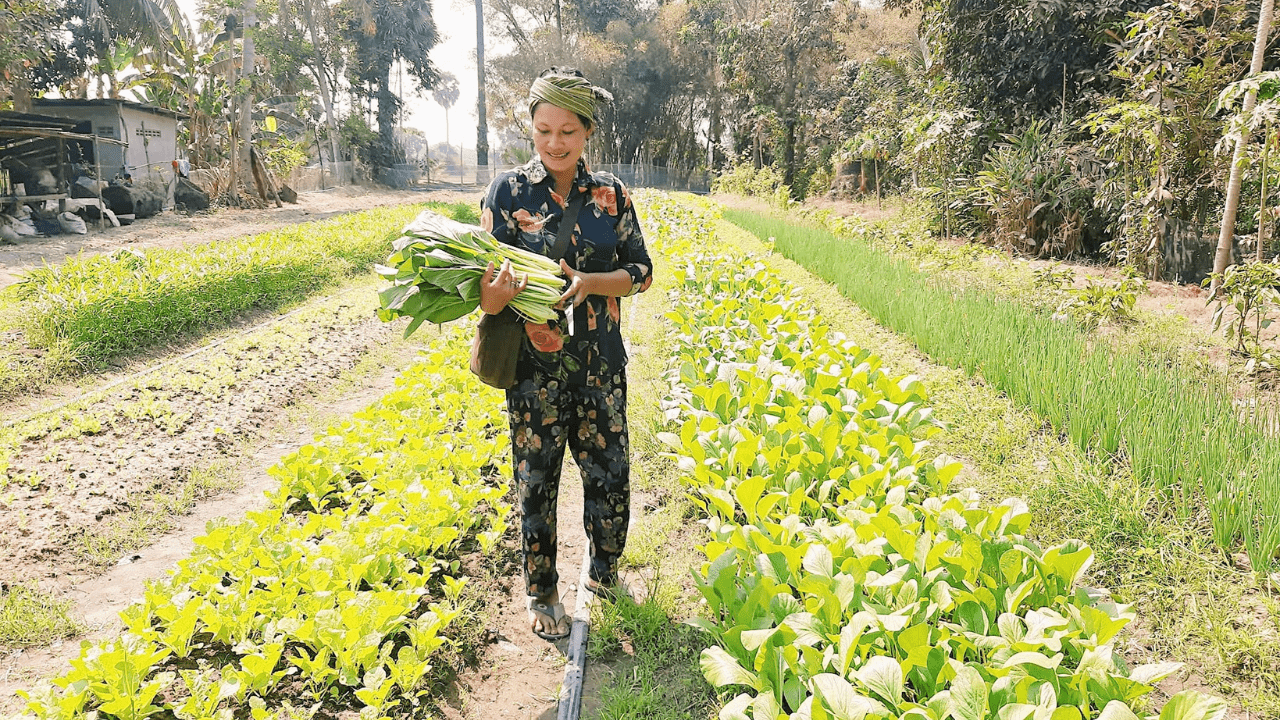The Circulation Economy and a Crucial Question: Local or Global
Here at B1G1, we’re often asked the question:
“Should our business give to causes locally or globally?”
For many of us, supporting local causes seems to be more important because those issues are top of mind and closer to home. It's almost in our DNA that ‘charity begins at home’.
But before we talk about adding in a global focus, let’s first look at the importance of giving – which is about circulating our precious resources – and why it matters so much.
Importance of Giving:
For an ecosystem to thrive, we need resources to circulate. All living things on our planet eventually die and return to the soil to host new life.
Money needs to circulate to support the economy. Older generations support education and development of new generations. Water circulates in the natural ecosystem to support all life in different chains of regenerative activities.

When we block this flow of circulation, these precious resources can even become harmful (like water held in a container for a long time or resources hoarded by a few).
Our giving activities are the same. Giving is an essential element of living a rewarding life. As human beings, we’re all at our best when we’re giving in some way; sharing our wealth, skills, knowledge, time, love, and wisdom with others who can benefit from them, can enrich our own lives. And this leads to the growth of the next generation and helps create sustainable and abundant communities.
Giving really is our long-term abundance strategy. Study after study (such as this one) finds that people who give are naturally happier in life too.
So, there is no question about the importance and benefit of giving. But let’s see how that impacts the question about local vs global.
Local vs Global
Centuries ago, when our economy and lives were built on a local circulation model, taking care of our own communities and neighbors was our utmost priority. We ate food grown on our local land and exchanged goods and resources with people who lived nearby.

Supporting those we could see and taking care of the environment around us was more important, even though we knew about people living in faraway lands too.
Thousands of years earlier, we had even smaller circles. It was more about fending for our own tribes or immediate families and fighting off predators or competing with others who were outside those circles.
Today, not caring for people who live beyond our borders impacts our own survival (this is also evident in the most recent UN report on the climate actions required). We live in a more connected world than ever before in terms of resource circulation.
Consider, for example, that the total value of global trades hit a record $32 trillion in 2022. We are surrounded by materials that have traveled half the world to end up in our living rooms, offices, and cities. We eat food produced in a faraway country and use ingredients that have traveled across the globe to our table. We also live and work among people whose ancestries cover the entire world.

Our modern-day lives are supported and enabled by the work of engineers, researchers, doctors, scientists, artists, producers, farmers, construction workers, and factory workers worldwide. And this list continues endlessly. These people also have their own dreams, family members, and challenges. They all make contributions and sacrifices to co-exist in this world, and to support our children and grandchildren.
And these lives depend on the natural environment which our own lives may have an impact on. The lifestyle enjoyed in a nation may have a negative impact on the weather patterns, as well as on the availability of natural resources in a country with a population that may never enjoy such privileges. The long-standing suppressions experienced by certain populations can turn into anger and hatred that can bleed into confrontations and conflicts.

Our Shared Responsibility
Naturally, it’s critically important to remember that our circulation economy is supported by the entire planet and our lives are enabled by others who make unseen contributions to help us. We have shared responsibilities to ensure that every child and every person can access fundamental resources and opportunities to create a prosperous life.
So, the next time we have the opportunity to be kind and generous, we can remember to spread that deed to the person in front of us as well as those we never meet. This is our important first step to create more caring and generous communities. When we encounter opportunities, we reach out and help others in greater need.
Sharing a kind word, listening, sharing skills and material assistance – we can start with our own family, neighbors, and friends first.
And this takes us to the next important step – to extend our reach and support those we do not see, without even being reminded. We can design this global contribution consciously and strategically to extend our support to other members of this entire family planet, for greater shared prosperity.
And if you are not sure how you can do that, please talk to us.
Together, we can create a world full of kindness - one small deed at a time.
